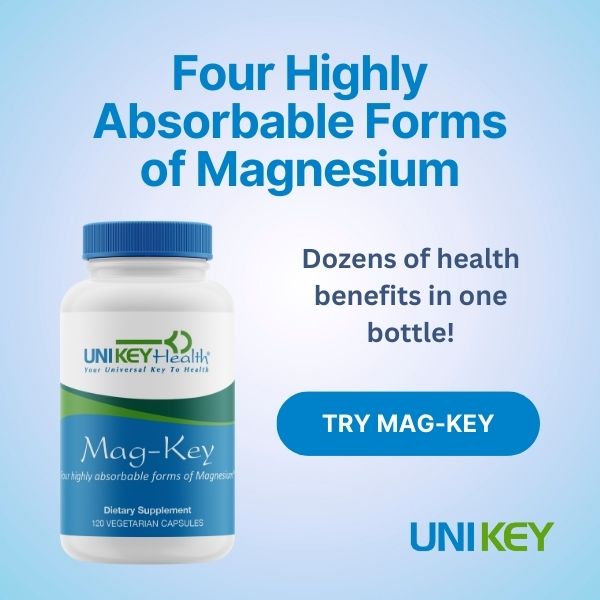 90% of Americans get too much sodium.
90% of Americans get too much sodium.
Humans need only a teaspoon of salt a day. Yet most Americans ingest far more. “This is not good news,” says Janelle Peralez Gunn, author of a recent study by the Centers for Disease Control (CDC).
This CDC survey of close to 4,000 Americans 20 and older finds that participants consume more salt than is advisable. And those who most need to restrict sodium intake—people who have high blood pressure and anyone over 40—were getting twice as much as needed. In addition to the Institute of Medicine’s recommendation to shake the salt habit, the World Health Organization (WHO) says lower sodium intake would save millions of early deaths.
Almost 80% of American’s daily salt intake comes from processed foods, particularly chicken (much of which is injected with a salt solution), cold cuts, pasta, pizza, and yeast breads. Most consumers have no clue as to how much sodium they’re ingesting, suggests a study in the Canadian Journal of Cardiology.
“Sodium has become so pervasive in our foods that it’s difficult for the vast majority of Americans to stay within recommended limits,” Peralez Gunn explains. “The foods we eat most contribute the most sodium,” says Elene V. Kuklina, MD, PhD, at the CDC’s division of heart disease and stroke prevention.
Dr. Ann Louise’s Take:
I’ve long advised clients to reduce sodium for a variety of very good reasons!
For starters, sodium’s water retaining properties are well known. Eating salty processed foods can pack on “false fat” or water weight. “Unless the excessive consumption of salty snacks [and other processed foods] is curtailed, other interventions focusing on increasing physical activity and fruit and vegetable consumption will have a limited impact on obesity control,” a recent RAND study says.
Consuming 1½ teaspoons of salt a day is enough to raise blood pressure, upping the risk for heart disease, kidney failure, and stroke for most people. Normally your kidneys naturally balance the amount of sodium stored in the body. When salt levels are too high, your kidneys excrete excess sodium in urine.
If for some reason, the kidneys can’t eliminate sufficient amounts of sodium, it starts to accumulate in the blood. Since sodium attracts and holds water, blood volume increases, making it harder for your heart to move this extra blood through your blood vessels.
Congestive heart failure, cirrhosis, and chronic kidney disease make it harder for the kidneys to keep sodium levels balanced. Some salt-sensitive people tend to retain this mineral more easily, so are at greater risk for high blood pressure, cardiovascular problems (like congestive heart failure), and kidney disease.
A Little Goes a Long Way
That’s not to say you should cut salt out entirely. Besides contributing to healthy fluid balance in the body, sodium influences contraction and relaxation of muscles, as well as helping to transmit nerve impulses.
Athletes, particularly in hot weather when they’re sweating more than usual, need sufficient sodium. For people with low blood pressure or adrenal burnout—or that matter, chronic fatigue—a little salt can go a long way. I’ve also found that salt can help prevent the body from becoming too acidic.
Rather than eliminating salt, learn to live with less. If your blood pressure is normal and you’re not salt sensitive, aim for about 2,000 milligrams (mg) or 1 teaspoon daily—from processed and restaurant food as well as your own salt shaker. If you’re over 40 or have hypertension, however, you would be smart to keep your sodium intake under 1,500 mg.
Cutting out salt entirely can stress the heart. Instead of going cold turkey, here are some ways to reduce your salt intake:
• Cook with herbs and other seasonings. Cayenne, ginger, and dried mustard boost metabolism while apple cider vinegar, anise, cilantro, fennel, and parsley help shed water weight.
• You don’t need to salt cooking water. Always taste food before adding any seasoning—you may be surprised to find you don’t it as often as you might think!
• Enjoy sea vegetables (agar, arame, hijiki, kombu, nori, sea palm fronds, and wakame) and season food with Seaweed Gomasio for natural sodium and that critical mineral iodine.
• Monosodium glutamate (MSG) excites nerve cells as well as taste buds, so check for it on labels as well. But when found naturally in foods like mushrooms, peas, and tomatoes, MSG doesn’t appear to present problems.
• Be aware of hidden sources of sodium: canned foods, condiments and pickles, commercial chicken breasts that are injected with salt water, deli foods, dry mixes, smoked fish and meat, certain medications (particularly antacids, laxatives, and nonsteroidal anti-inflammatory drugs or NSAIDs), and even toothpaste.
• Read labels on all packaged and processed drinks (even bottled water) and foods. The quickest way to discover salt is to look for words “salt”, “sodium”, “Na”, or “NaCl”. A “sodium-free” label claim means less than 5 mg of salt per serving.
• Never use salt to soften water. Not only does it drastically increase your sodium intake but it also reduces important minerals that support health. I use the CWR Basic Crown Ceramic Filter (available in both counter top and under counter units) with activated carbon block and ion exchange media for safe, clean, great-tasting water.
• Eat in—and enjoy summer’s rich bounty of fruits and vegetables, which require little—if any—seasoning. Learn to savor the taste of real food, fresh from the garden. Check out these great summer recipes—sans salt—on the Smoothie Shakedown blog.
“We know from scientific studies that if you reduce your salt intake by a little amount every day or every week or every month. . .then you can retrain your taste buds,” says Professor Franco Cappuccio, who heads WHO’s center for nutrition. “So we really can retrain people—whole populations—to enjoy food with less salt in it.”
Sources:
Fat Flush for Life
The Fat Flush Plan
Get the Salt Out
https://sportsmedicine.about.com/od/hydrationandfluid/a/Sodium_Salt.htm
www.mayoclinic.com/health/sodium/NU00284
www.medicinenet.com/script/main/art.asp?articlekey=117550
www.megaheart.com/pdf/sodiuminmedications.pdf
https://www.ncbi.nlm.nih.gov/pubmed/20485696
https://www.ncbi.nlm.nih.gov/pubmed/20402200
www.reuters.com/article/idUSTRE65N5I320100624
www.reuters.com/article/idUSTRE64O66V20100525
www.usatoday.com/news/health/2010-06-24-salt-diet_N.htm








